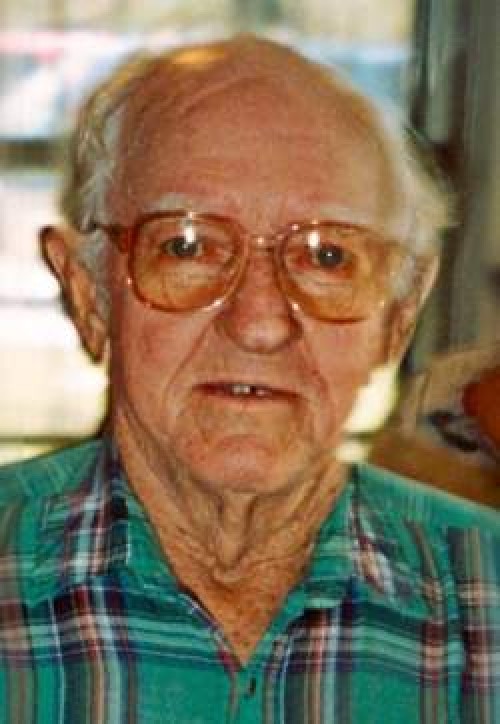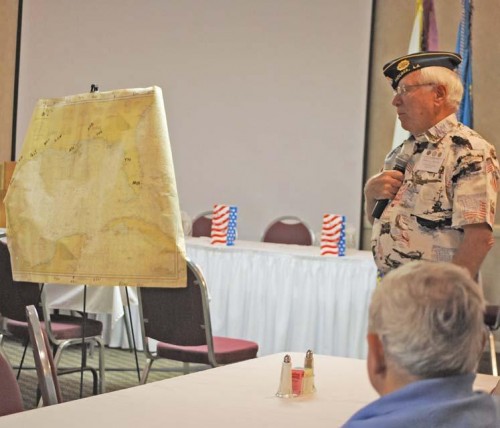
Andrew Galliano Sr.
October 19, 2010
Local historian revisits WWII submarine warfare
October 21, 2010A decade of commercial development on the northwest side of Houma, extended dry weather patterns and property owners allowing vegetation, litter and debris to gather in drainage ditches were cited as the primary reasons for flooding problems in Bayou Cane.
Thirty-six residents gathered at St. Bernadette Catholic Church on Thursday to hear Terrebonne Parish President Michel Claudet explain progress and plans for storm water drainage in the neighborhood as part of a $17 million sewer improvement strategy for the Houma metropolitan region.
“We’ve done a lot of things in this area,” Claudet told the small crowd in reference to the addition of a pumping station and clearing of debris along the St. Louis Canal, and a dedicated $7 million for sewer plant improvements.
It was also noted that culverts in Broadmoor subdivision are 75 percent complete.
While the parish president made his case regarding upgrades, including increased personnel and equipment for maintaining the area, he admitted that the consolidated government has room for improvement.
“We, as a parish, react to what is being done. We need to do better [in terms of preventing problems],” Claudet said.
Residents speaking at the public forum consistently complained that while taxpayer dollars had been designated for flood controls over several decades, the troubled areas remain.
“Government can’t solve every problem,” Claudet said. “We need citizens. We all need to work together.”
Councilman Billy Hebert backed up the parish president by reminding residents that part of their problem came as the result of community growth and is a byproduct of development.
“A lot of our problem is the result of property development and expansion on Martin Luther King Boulevard,” Hebert said.
The councilman said that while commercial development is good, it also carries with it some unwanted hazards – the most obvious of which in a delta region is water runoff from concrete laid over what had once been open land.
It was also pointed out that prolonged dry weather – an element over which no one has control – does not work in favor of helping with drainage issues.
“I can’t go back and change it. Mr. Claudet can’t go back and change it. But we can address it,” Hebert said followed by his suggestion that, in the future, developers pay an impact fee to compensate existing property owners for any water runoff and flooding problems.
Claudet and Hebert also addressed matters more in the control of area residents – specifically making an appeal that all property owners make sure their own yards are kept clear of obstacles that would trap debris and result in flooding.
“If you have a fence going across [a ditch] catching stuff, pretty soon you are going to have a dam,” one attendee was overheard as having said during the meeting.
“To me, drainage is important,” Hebert said. “It’s an ongoing problem. But it is up to y’all to be a sounding board. If you see something you don’t like, call and let us know.”
Hebert and Claudet agreed that while property development impacting drainage in Bayou Cane will take some investigating to see how best to address it, in residential areas citizens can do a lot to help themselves and their neighbors.
“We have inherited a problem,” Hebert said, “and we intend on fixing it. It is each and everyone of [our] responsibility to be part of the solution.”
Last week’s town hall meeting was the third in a series being conducted by Claudet.






